Weekly Share Contents: Leaf Lettuce or Spinach Red Potatoes Zucchini Green and Yellow Beans Eggplant Green Peppers Onions Tomatoes Ground Cherries or Tomatillos Recipe Ideas:
Roasted Eggplant Dip 1 medium eggplant 1/3 cup fresh parsley, chopped 2 - 3 tbsp tahini 2 tbsp rice vinegar 1 small clove garlic, chopped 1 tsp curry powder 1/4 tsp coriander 1 tbsp olive oil 1/2 tsp honey 1/2 tsp sea salt Freshly ground pepper, to taste Preheat oven to 400 degrees. Wow! This week marks the halfway point of our 20 week CSA season. On one hand, it's hard to believe we are half-way through. On the other hand, I spend so much time thinking ahead to the next crop to be harvested, task to be done, and planning for the next season, that I am often surprised that we still have 10 weeks to go when a lot of our tasks right now are related to fall and winter preparation. Either way, we have lots of new and delicious crops for you to eat for the remaining 10 weeks. You can look forward to: yellow, red, and purple potatoes, peppers, 6 varieties of winter squash, savoy cabbage, napa cabbage, onions and shallots, parsnips, winter radishes, cauliflower, broccoli, and more of many of the crops you've already been enjoying. We will be taking a week or two break from carrots in the shares to allow our next planting to get to a nice size. Then, we will have carrots for the rest of the season, since I know they are a popular item! This past week was our intern, Erin's, last week. We will miss her hard work and wonderful meals she has prepared but we wish her well on her future endeavours in Quebec. From this point on, it will be Kimmy and I 'holding down the fort' in the market garden. Chicken Reminder: Our first batch of whole roasting chickens will be butchered this week and ready for pickup on Wednesday, September 2nd from 4 - 6:30pm at our regular pickup. We still have chickens remaining - if you are interested please fill out our online form as soon as possible. We will not be bringing chickens other than those that have been pre-ordered. Weekly Share Contents: Head Lettuce or Spinach Green Onions Beets Zucchini Green and Yellow Beans Eggplant Swiss Chard or Kale Tomatoes Recipe Ideas:
I know the novelty of fresh green and yellow beans can wear off quickly for some people. If you are getting a little tired of the same bean recipe, try one of these delicious recipes for beans. Oven Roasted Green Beans Green Bean Salad with Balsamic Dressing Dijon Maple Green Beans Indian Spiced Yellow Beans Fresh Bean Salad with Zucchini How's that for an uplifting blog title! It's not as bad as it sounds! I wanted to spend a little time today writing about some of the diseases we battle in our vegetable fields and how we manage them using organic approved methods. Just like human health, plant health is best achieved by preventative measures and a healthy growing environment. In organic agriculture, treatment of disease after it occurs is often nearly impossible. Therefore, we focus on prevention. The preventative measures that we take to reduce the risk of disease include: avoiding overhead watering of vulnerable crops unless absolutely necessary, choosing resistant varieties, providing adequate ventilation around plants, keeping tools and equipment clean, avoid working in plants when the foliage is wet, ventilating the caterpillar tunnels, and planting in biodegradable mulch to prevent soil splash back. The majority of the common diseases we see are fungal or bacteria based organisms that proliferate in moist and warm (but not hot) environments. These diseases can include downy mildew, powdery mildew, early and late blight, and cercospora leaf spot. Also like human health, the nutrient density of the plant's food affects the health and immunity of the plant. Plants receive their nutrients through the soil, so if the soil is depleted, the plants will be more susceptible to diseases and pests. Despite taking these measures, farmers will almost always see some disease in their fields each year. The severity of the disease is affected most by weather conditions and the speed at which we identify and destroy the diseased plants. There are organic approved sprays that can help to reduce fungal and bacterial infections, namely Sulfur and Copper. We have chosen not to use these sprays on our farm for several reasons. Of the two, sulfur is less damaging but it is a broad spectrum treatment, which means that along with killing undesirable pests and disease organisms, it also kills beneficial insects and organisms. Since our honeybees, as well as bumblebees and other pollinators, are always at work in our crops, we would risk killing them when spraying. Copper is also broad spectrum in nature and bio-accumulates in the soil which can cause toxicity to plants and animals grown in the area in the future. On top of this, both substances require the farmer to wear a respirator to avoid inhaling as they will damage the lungs. The substances we do use to prevent or treat disease are hydrogen peroxide, baking soda, hot peppers and garlic, and soap. These are much more innocuous although not without issues. Some beneficial insects can be killed or harmed by these substances. You are probably wondering what diseases we have seen in our fields this year! The two primary diseases we are seeing are Late Blight in the tomatoes and Downy Mildew in the cucumbers. So far, we have slowed the progression of late blight in tomatoes by pulling all plants that were showing early signs of the disease. This meant that we pulled all our field tomatoes (about 200+ plants). The tomatoes in the caterpillar tunnels are just now showing some minor signs of the disease, but we won't be pulling these. Since they are in the midst of ripening we are going to leave them and play the ripening vs. disease progression game. Share members from last year will remember that we lost all our tomatoes to late blight which was very disappointing. Late Blight is every tomato (and potato) grower's worst nightmare because it can move so quickly and be highly destructive. That said, the symptoms are currently contained to the leaves and the fruits look good. I predict that we will have a few weeks of tomatoes but not an extended season. There is much research currently being done by the University of Guelph and others to determine why Late Blight has become so widespread and problematic since 2009. We had a plant pathologist visit our farm and test our tomatoes to see which strain we have in order to help them determine how the strains are moving and reproducing. The short version hypothesis is that the 26 existing blight strains are cross-reproducing and creating 'super pathogens' that are resistant to our current methods of control. For some historical context, it was Late Blight that caused the Irish Potato Famine in the mid-1800's. As for the Downy Mildew in our cucumbers, we ended up pulling all the plants to prevent spread to our winter squash and summer squash. This means cucumbers are at an end, but the plants were so damaged they were no longer producing properly anyways. As farmers, it's always very frustrating to lose an entire crop. Luckily, the CSA model means that we have many different varieties and types of vegetables planted which lessens the economic blow. Diversity is an essential part of a viable and vibrant farm, in my opinion. While I hate to jinx things, we have many crops that are looking beautiful and un-bothered by diseases or pests. Peppers, root crops (carrots, beets, parsnips), all the brassicas (cabbage, kale, broccoli, etc.), and lettuce are doing great! In other news, we rose bright and early Saturday morning to pull the poly on our greenhouse. This will become our heated greenhouse where seedlings are started in the winter. The plastic must be pulled in the early morning because any wind makes the job impossible. Weekly Share Contents: Head Lettuce or Spinach Carrots Beets Beans Zucchini Cabbage or Fennel Eggplant Green Onion We may see some tomatoes this week as well....they are starting to ripen nicely. Recipe Ideas:
A favourite around here, beets are sweet, nutritious and versatile. While roasted is a classic way to prepare beets, with the summer heat it can be nice to use beets raw instead. Check out this link for some great beet recipe ideas : http://www.foodnetwork.ca/in-season/photos/25-beautiful-recipes-you-cant-beet/#!ac22f66dbe049ba812d041e504b06927 We will be bringing the first of our 2015 honey to the CSA drop-off this week! Share members will be able to purchase at a reduced price of $12 per 1 kg jar and $7 per 500g jar. This first honey, although later than usual, is delicious and golden! Our honey never last longs but we will be taking more honey off later in the season once we are assured that the bees have enough to support the colony through the winter. I have been negligent in saying a big "THANK-YOU" to our existing share members who referred new share members this season. Share member referrals are one of our best methods of advertising and we greatly appreciate your efforts! The following share members made referrals and receive a $20 farm credit for every new share member referred. These farm credits can be used on items like honey and apples (later in the season) or can be saved and used against your 2016 share membership. Thank-you to: Yvonne Howell, $20 credit Gabrielle Brankston, $20 credit Jordan Richard, $20 credit Troy Byrne, $20 credit This week on the farm, in addition to our regular tasks, we will be prepping for a farm tour that Rob is leading on Sunday, August 16th from 1 - 4pm. The theme of the farm tour is "Using Trees on Your Farm" and Rob will be showing participants the various ways we use trees on our farm, helping people choose the best trees for their environment, and teaching participants how to grow trees from seeds or cuttings. This tour is part of the Ecological Farmers of Ontario (EFAO) summer farm tour series and more details can be found on their website. You don't need to be an EFAO member to attend these workshops and tours!
Did you survive the wind and rain intact?! We mostly did, although we had a few casualties around the farm. The storm brought heavy winds, rain, and we lost power for 6 hours. But luckily we didn't get any of the hail that some people experienced. When touring the farm this morning, we discovered that our biggest Asian Pear tree was snapped off at the base. This tree had survived being uprooted and moving from Guelph with us and four seasons on the farm. But the storm last night took it down. Luckily, it is sprouting from the base, above the graph, so we should be able to re-grow it. We also discovered that one of our mature trees, an ash, lost a few limbs and one of them speared through the plastic on one of the caterpillar tunnels. None of the tomatoes inside were damaged, but the plastic looks a little worse for the wear! Two broiler chickens tried to stay outside in the storm but didn't survive because they got chilled through. Although their instincts should tell them to run for cover, sometimes they choose to hunch their shoulders and try to wait out the storm. Rob was very much a drowned rat after trying to convince the 200 broilers and nearly 75 laying hens to go inside! We were very thankful to get the rain because the fields were getting extremely dry. Next time, we will hope for a slow, gentle rain! A reminder to all share members interested in ordering whole roasting chickens: the order form is available on our website under the tab 'Pastured Poultry' and we still have chickens available. We require a 2 chicken minimum order and a $20 deposit at the time of ordering. The remainder can be paid at time of delivery. We will be delivering the chickens to Guelph on Wednesday, September 2nd during our regular CSA pickup. Mount Forest share members can pickup the chickens on the farm. Our chickens have been fed 100% organic feed, in addition to having free access to our pasture.
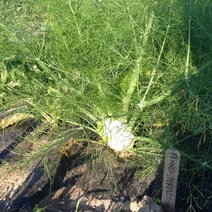 Recipe Ideas: Fennel is a vegetable that may be uncommon to some people, but can add an interesting flavour to many dishes. Fennel is in the carrot family and has a mild licorice flavour. The flavour is more pronounced when raw and lighter once cooked. The two simplest ways to prepare fennel are to shave or thinly slice and toss into a salad or mix with other root vegetables and roast. Check out this link for some delicious fennel recipe ideas: http://www.canadianliving.com/food/seed_to_supper/15_fabulous_fennel_recipes.php |
Archives
February 2020
|
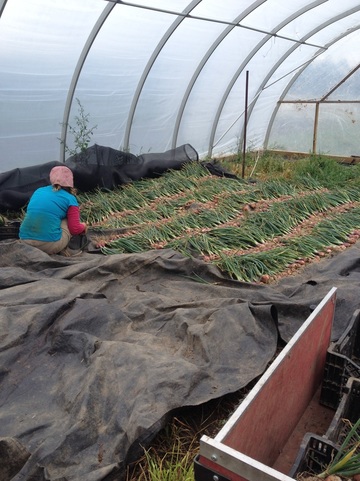
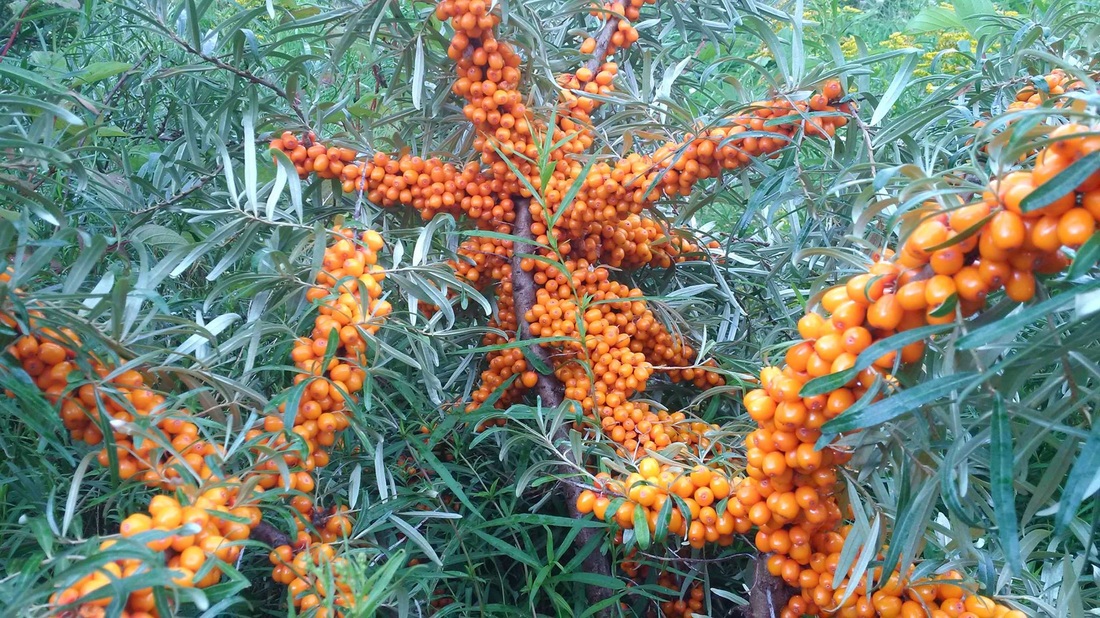
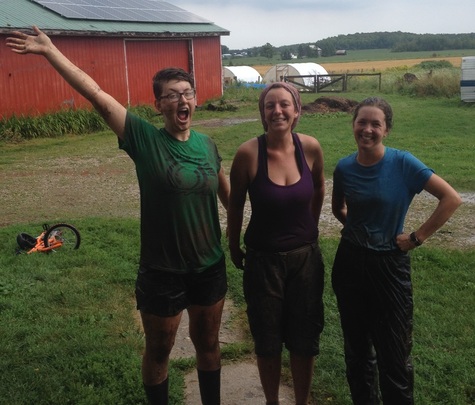
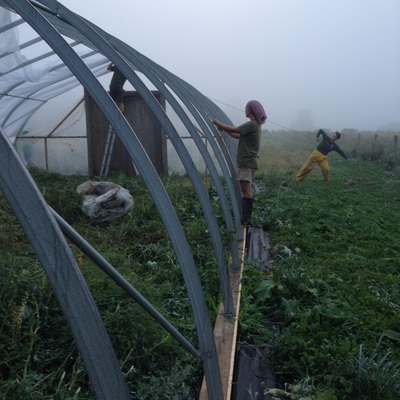
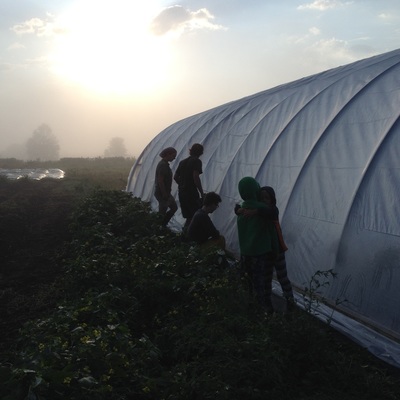
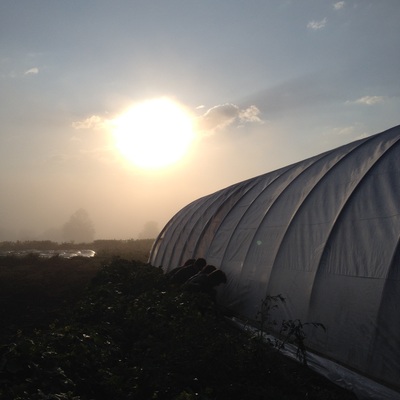
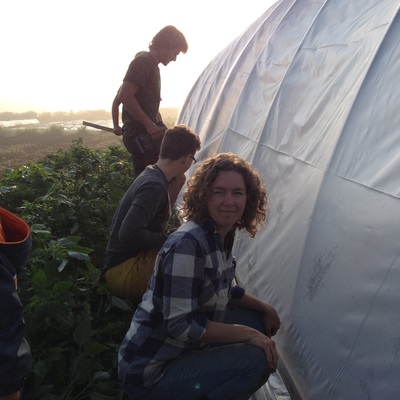
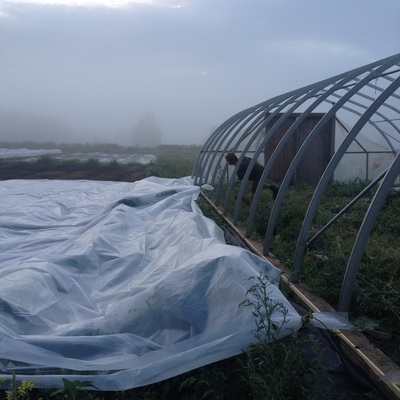
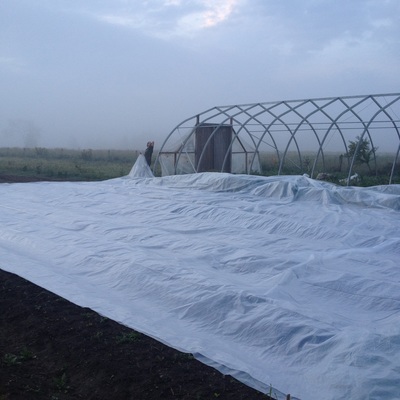
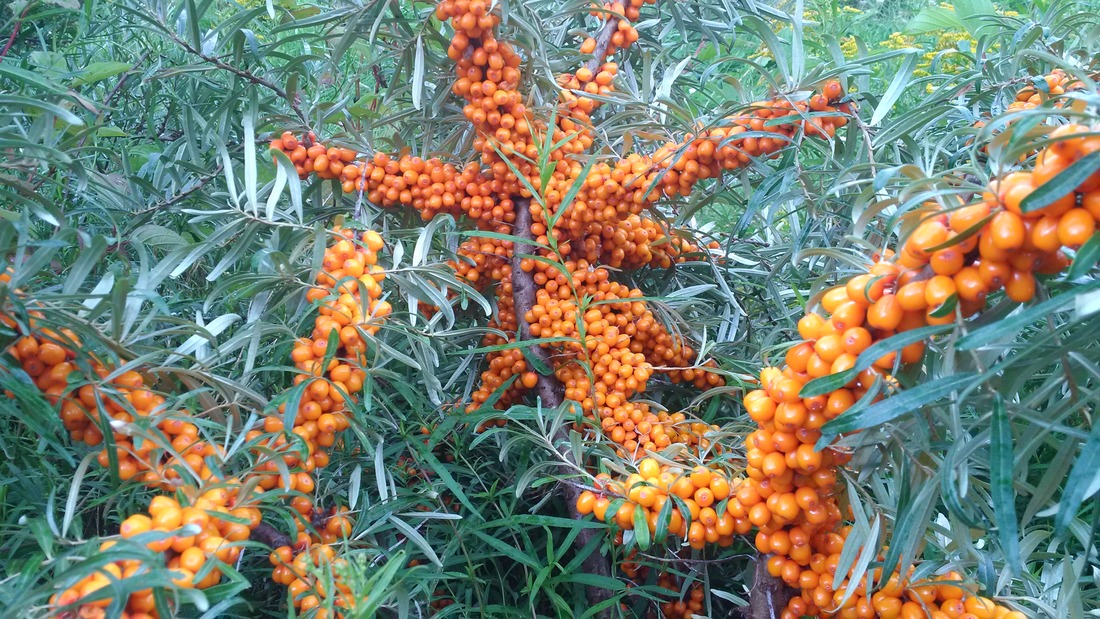
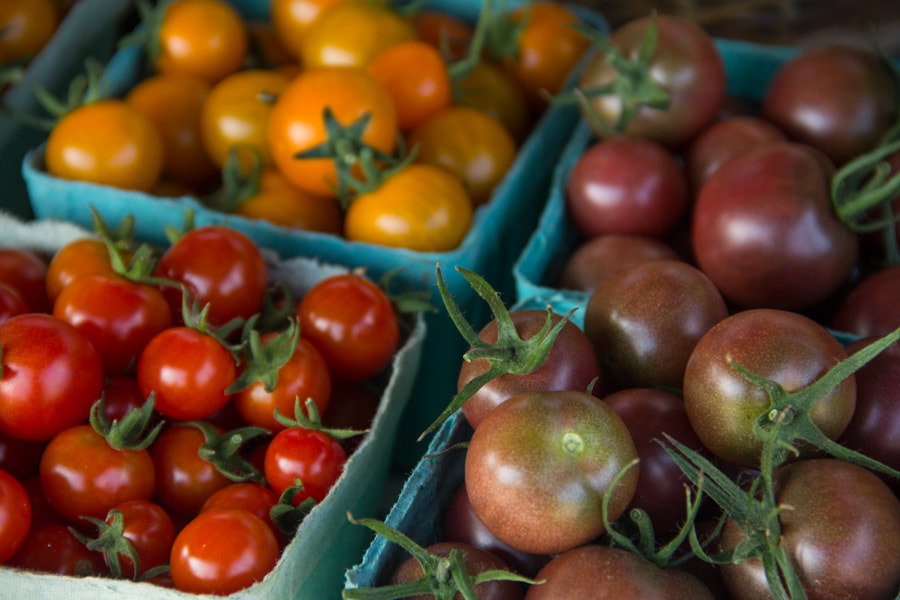
 RSS Feed
RSS Feed